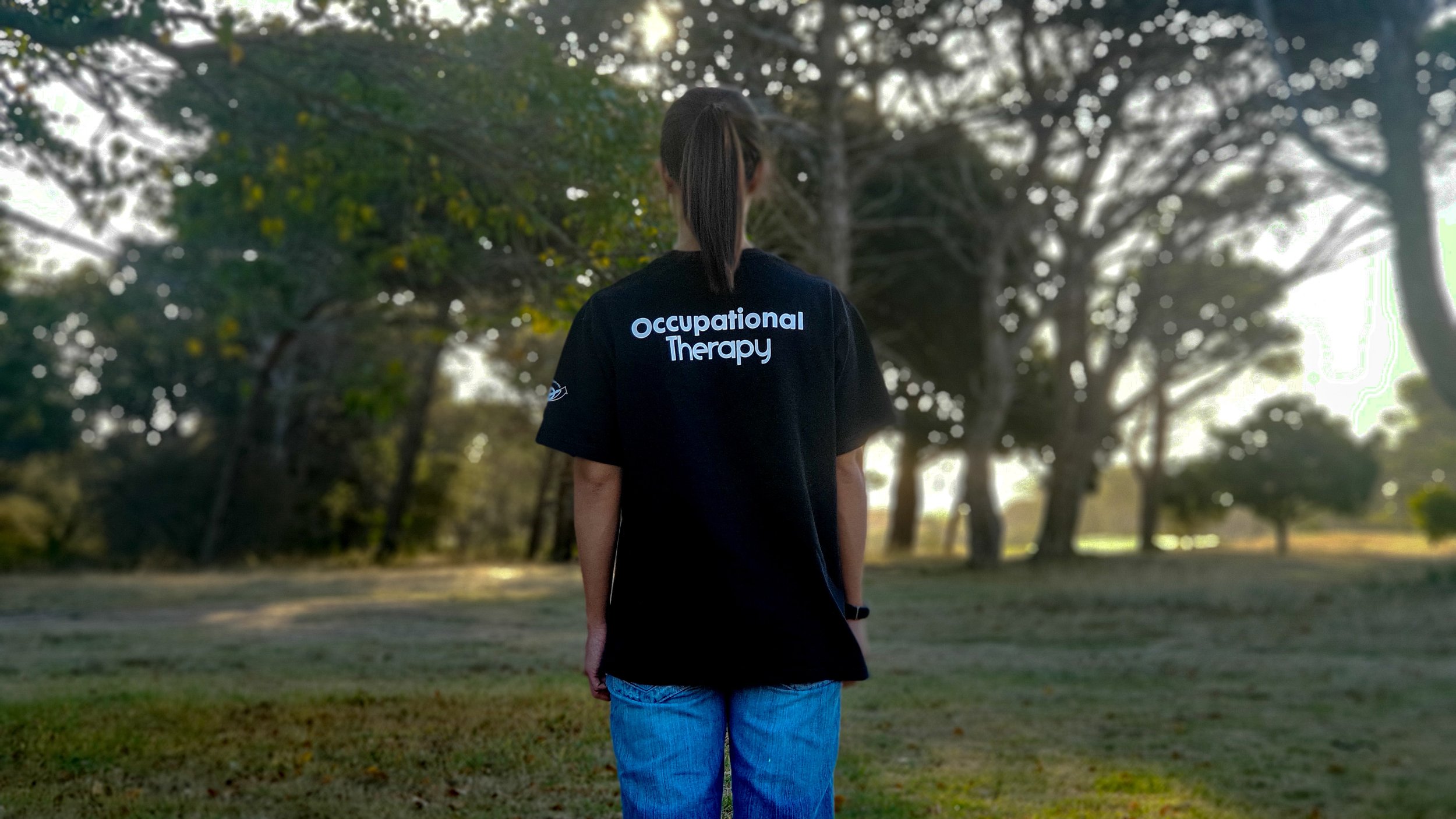Why Doing Things Matters
Have you ever stepped back and noticed how the things you do every day affect your health and happiness? What we do every day tremendously impacts our physical and mental wellbeing. That's why occupations or "doing things" is so essential in a holistic approach to health, and it is what occupational therapy is all about - helping people do the things they love or need to do to live their best lives - or stop doing things that are harmful to their wellbeing.
Occupation is really just a fancy word for activities we do to fill our time and achieve our goals. It can be anything from brushing our teeth and getting dressed, writing a letter or doing the shopping to playing sports and hanging out with friends. No matter what it is, doing things is important!
For kids, "doing things" is essential for learning and growing. Playing and exploring help kids develop many meaningful skills, from problem-solving to socializing. Through occupations, children explore, take risks, build stamina and motor skills, make friends and other important connections, and learn all sorts of life skills. Occupational therapy can help kids of all abilities participate in activities they want or need to do and reach their full potential.
Just as for kids, activities are also crucial to staying healthy and happy for adults. Exercise, for instance, can help prevent or ease many health problems, including heart disease, obesity, anxiety and depression. Having hobbies and engaging in social activities can make life more fulfilling and enjoyable, often giving us a sense of direction and purpose. Especially in older age or through major life transitions such as a job change or childbirth, the occupations we engage in tremendously affect our identity and health.
As occupational therapists, we work with people to figure out what activities are important to them and then help them achieve their goals around those activities. We might suggest modifications or adaptations to make activities more accessible or teach new skills to improve performance. We also advocate for our clients, educating them about their rights and possibilities and can help them navigate tricky relationships, including workplace-related ones.
Occupational therapy also recognizes and values the importance of cultural and social factors in determining what activities are meaningful to individuals. Cultural, spiritual and social factors should inform goal-setting, communication, and interventions, ensuring the comfort and safety of our clients. We work with clients to understand their cultural backgrounds and social contexts and identify important and meaningful activities.
Occupational therapy is important for people who have experienced a major injury or illness, affecting their ability to do the things they love. OTs can help these individuals regain their independence and find new ways to engage in activities that are important to them. If someone has difficulties using their hands, we might suggest using special utensils or tools to make cooking easier. Or if someone has consistent low mood, we might offer techniques such as Mindfulness-Based-Stress-Reduction (MBSR) or Cognitive-Behavioural Therapy (CBR) or actively help them with more concrete steps like trying out a new hobby or joining a social group.
Participating in a hobby or sports team can provide opportunities for social interaction and instill a sense of belonging. Volunteering or participating in community activities can also give purpose and can help people feel like they are contributing positively to society. It can even help with a Return To Work!
Occupation or "doing things" is the core of occupational therapy as it is essential for promoting clients' health and wellbeing. Meaningful activities give people purpose, direction, and fulfillment. As occupational therapists, we can help people of all ages and abilities engage in these activities and support them in achieving their full potential and living their best lives.
References
American Occupational Therapy Association. (2020). Occupational therapy practice framework: Domain and process (4th ed.). American Journal of Occupational Therapy, 74(Suppl. 2), 7412410010. https://doi.org/10.5014/ajot.2020.74S2001
Jaffe E. The role of occupational therapy in disease prevention and health promotion. Am J Occup Ther. 1986 Nov;40(11):749-52. doi: 10.5014/ajot.40.11.749. PMID: 3538885.
Occupational Therapy College of Ontario (n.d.). What Occupational Therapists Do. Retrieved from https://www.coto.org/clientsandthepublic/working-with-an-occupational-therapist/what-occupational-therapists-do



